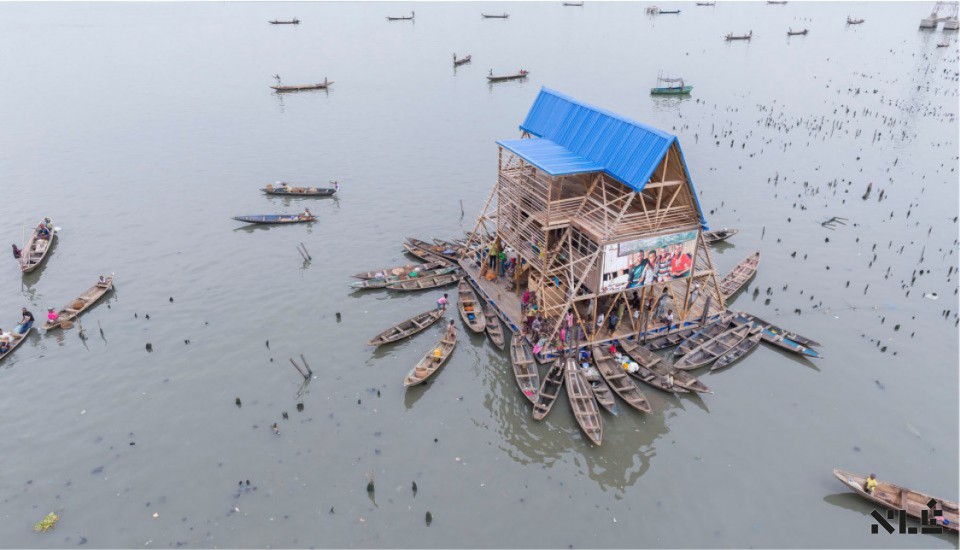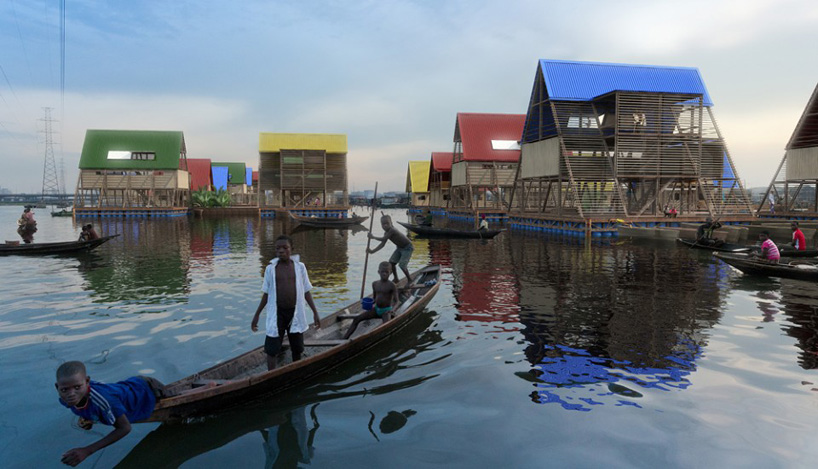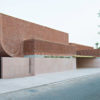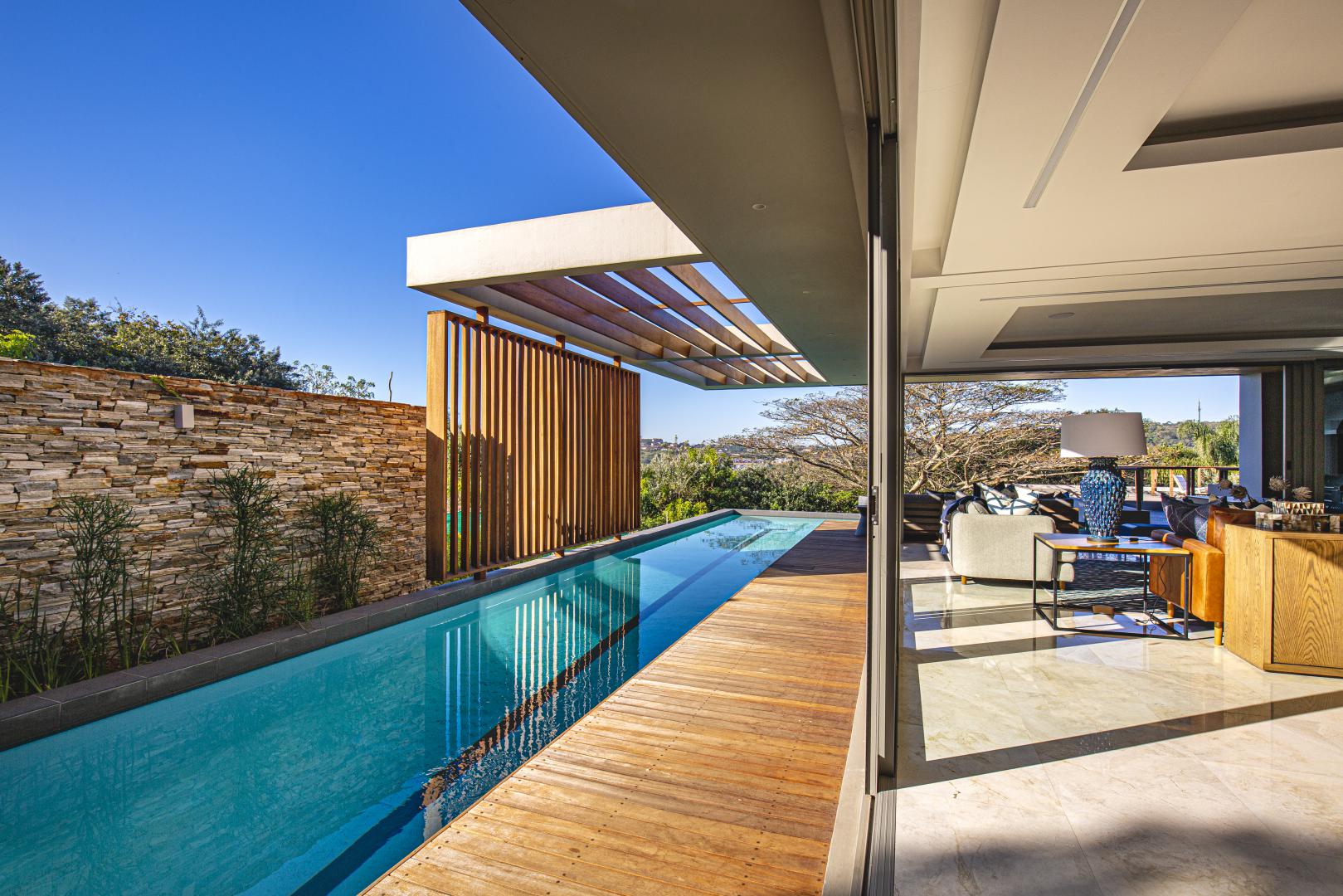In this short writeup, Design Party’s Baba Oladeji offers 2 simple lessons to be taken away from Kunle Adeyemi’s Makoko Floating School.
WORDS BY BABA OLADEJI
Maintain sense of place
In a nation that loves erasures, tabula rasas, bans, scrap thats and demolitions, Kunle Adeyemi cleverly avoids that third world trap. There is evidence of maintaining collective psychological archetypes in: the use of familiar timber and skill set, keeping the views to the third mainland bridge and perpetuating the amphibious lifestyle of the inhabitants. Rather than erase these subtle elements in the style of Nigerian governments, the essential makeup of Makoko is kept intact within the flux of urban change in Lagos.
Typology As Tactic
Second is a tactical deployment of building typology. Since the plan was to become a floating community, the decision to start with a school is a big sign. To my mind the architect is attempting to train the future: the children of Makoko, building the future minds of the community, their skill set and imagination to see possibilities in the amphibious nature of Makoko. The school is therefore a nod to a future community that can be sustained by the trained. It is almost like the Biblical account of creation where God first creates light. As light enabled the creation of other things, so does the choice of a school to kickstart the regeneration of this community enable the trained to sustain a culture of development. One that trains them to see the possibility of a floating community. One that ensures the children who are part of the aforementioned ‘familiar skillset’ can continue the work of Adeyemi. One that makes them proud, possibly, to live in houses there and ultimately become intellectual bulwarks against future demolitions. In short, as the architecture builds both the mind and body of Makoko, it also jumpstarts cultural re-production in the district.







